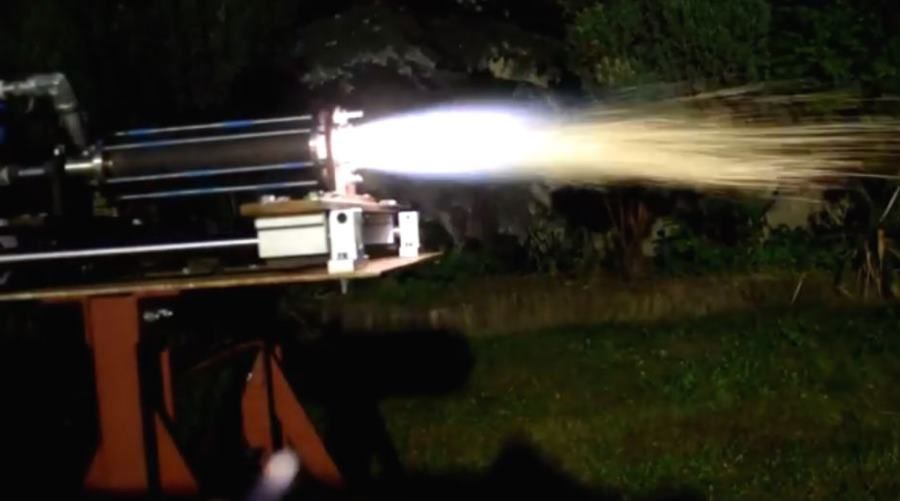Students from the Warsaw University of Technology constructed a liquid-fuel rocket engine
Students from the Warsaw University of Technology have constructed a liquid-fuel rocket engine
Liquid fuel rocket engine is the work of a studentow of the Propulsion Scientific Circleoin MELprop, operating at the Faculty of Power and Aeronautical Engineering of Warsaw University of Technology. As the designers point out, this is the first such engine at their university and one of the first in Poland.
As Warsaw University of Technology (WUT) reports on its website, it took the students three years to work on the engine. A group of several young researchers conducted dozens of simulations, analyses and calculations before deciding to perform a full test of the propulsion system, ktory was held in early May.
– Step by step we checked each subsystem and only when we were sure that they all worked did we organize a full test – stresses Alexander Gorgeri, quoted in a press release on PW’s website, head of theowny engine builder.
The engine generates a thrust of 500N, whichory is enough to propel a rocket. The students used kerosene as fuel, and nitrous oxide as oxidizer. Kerosene is used in jet aircraft, and nitrous oxide is nothing more than a laughing gas.
„Liquid-fuel rocket engines use liquid or gaseous oxidizer and liquid fuel (reductant). Such devices are more complex than solid-fuel engines. Importantly, however, they are also more efficient and safer than them, as the combustion process can be controlled in their case” – reads the PW website.
Created by a studentow engine is currently not a finished product, whichory could be used in the space industry. It should be remembered that the construction of such propulsionow is no easy task. Gorgeri points out, however, that at a low cost the technology they have developed can be improved so that it can be used in a rocket. – The most difficult step, i.e. building a working engine, is already behind us – admits.
Engine designoin rocket engines is demanding zaroboth financially and infrastructurally. That’s why it’s primarily handled by large space agencies like NASA and ESA. One knowledge and experience gained by members of theoin the KNN MELprop is invaluable.


